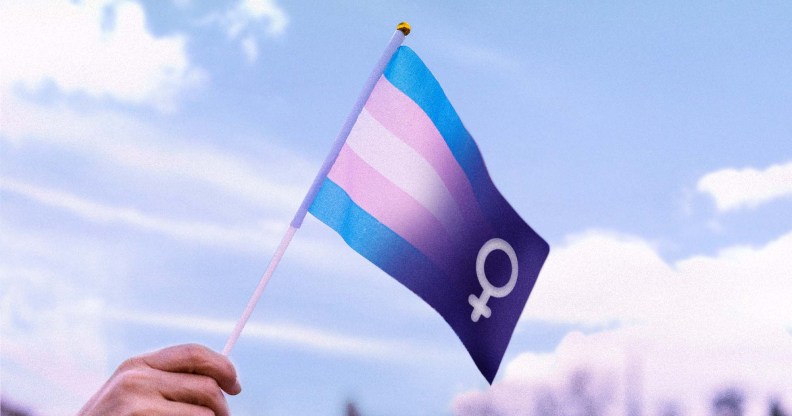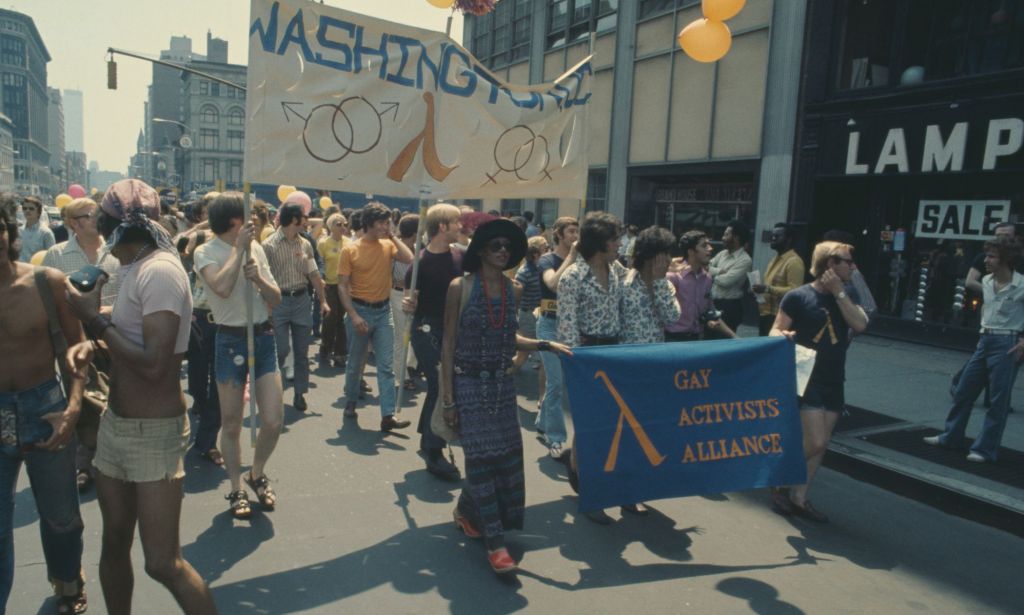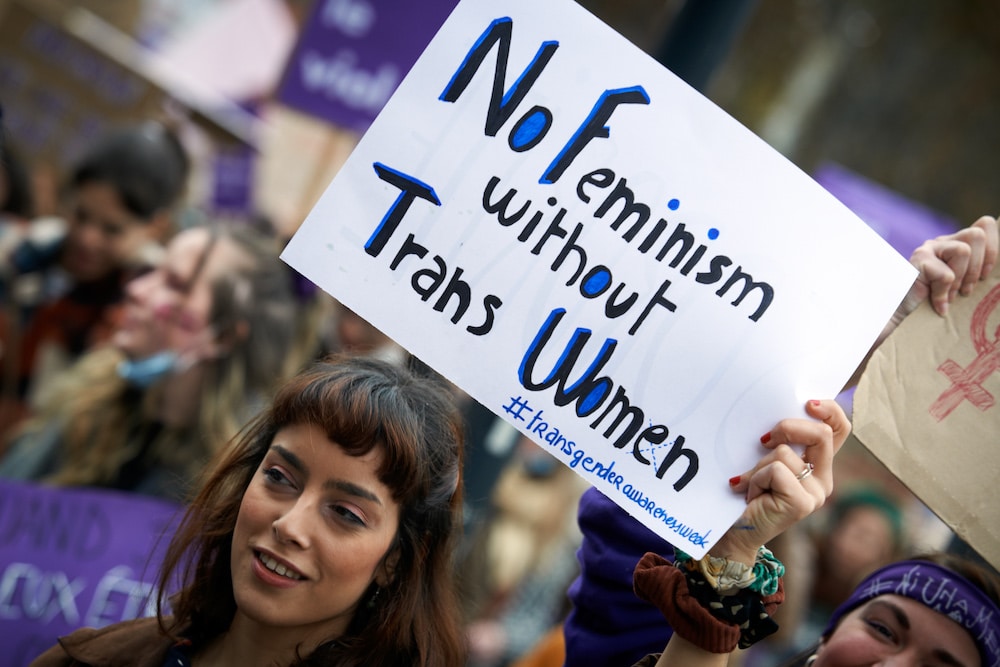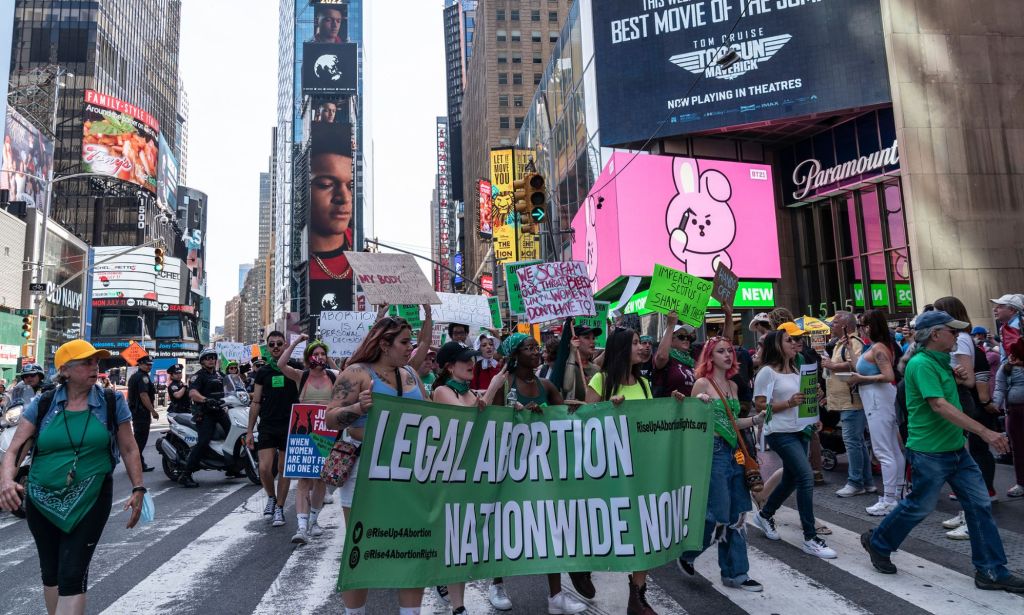Feminists explain how the fights for women’s rights and trans rights are one and the same

A survey has found the majority of adults who have transitioned say it made them more satisfied with life. (Getty)
Feminism needs to be a fundamental ally to trans women in order for women’s rights to progress, author Sara Ahmed wrote in her 2017 book Living a Feminist Life.
Speaking to PinkNews, she explains her belief that being an anti-trans feminist is inherently contradictory, because feminism should work to disestablish gender roles, and the abolishment of the gender binary is a step towards that.
“I have been writing and living and loving as a lesbian feminist for many years,” Ahmed says.
“I know that if you try to exclude trans people from feminism, you end up excluding so much feminism too. You are left with a feminism that doesn’t interrogate its own terms, and that uses terms like sex or nature or natal in the same way as the patriarchs do – to justify the restriction of the very freedoms we have been fighting for.”
Trans women, and trans people more generally, have always existed. While the fight for trans rights has been raging for centuries, the branch of feminism known as transfeminism was popularised in the mid-to-late 1900s.
The wave of LGBTQ+ rights protests following the Stonewall Riots prompted academics to examine how transgender identities coincided with feminist rhetoric.

Activists such as Kate Bornstein and Sandy Stone began writing critical analyses on how the progress felt by second-wave feminism could be utilised to break the gender binary and improve the autonomy of trans people.
The rise of transfeminist studies eventually became a pivotal component in the third and fourth-wave feminist movements, which gave rise to the idea that gender stereotypes are inherently outdated.
Issues around transfeminism have shifted over the years and, due to the sudden wave of anti-trans rhetoric, have become increasingly important in fighting back against oppression.
Trans-exclusionary groups that appropriate feminist theory, sometimes known as the anti-gender movement, have sprung up over the past decade as a reaction to the growing awareness of gender diversity.
Groups tend to argue that so-called “biological sex” is a priority concern in feminist theory and that feminism should be organised on the basis of sex rather than gender.
But, as Ahmed explains, this belief is often built upon patriarchal norms that end up inhibiting progress rather than helping.
“Feminists from a range of intellectual traditions have shown that the sex binary is a product of a patriarchal system – including historical material feminists as well as radical feminists,” she says.
“We can’t make that binary our cause without giving power to the patriarchs.”

Attempting to define feminism on the basis of biological sex would also ignore the rich history of LGBTQ+ feminist activism, Ahmed continues.
Not only did the wave of sex positivity which defined early third-wave feminist theory derive from LGBTQ+ groups such as the Gay Liberation Front and other, but so too has feminism been bolstered by trans women who’ve fought for the rights of themselves and all women.
“Trans women and cis women have been marching side by side for so many years, fighting for [a] world in which we get to live on our own terms,” Ahmed says.
“In fact, those of us who have had to resist who we are told we are or must be – [which is] true for many lesbians, for queer and trans people – have, or should have, an immense political affinity and solidarity.
“We cannot let ourselves be pulled apart by this reactionary moral agenda. We know what we are fighting for and that includes each other.”
The issues facing trans women are also hurting cis women
Last year alone was a grim reminder of why trans feminism is so important and why the issues it is attempting to fix intersect with feminism as a whole.
It’s no coincidence that anti-trans legislation began skyrocketing in the US following the overturning of Roe vs Wade – effectively gutting abortion rights in the country. It’s a direct result of animosity and complacency that has caused progress to stagnate.
A common argument from right-wing pundits is that feminism has somehow gone “far enough” and that women and marginalised communities have reached the equality barrier, despite there being overwhelming evidence to the contrary.
This belief means that conservative lawmakers view any amount of progress as a step too far, when in actuality it’s a step towards the bare minimum.
Activist and online video essayist Mia Mulder told PinkNews that there is an overwhelming amount of overlap between issues of cis and trans women and that the solutions “are almost always identical”.
She explained: “The goals of activism for both cis and trans women do, or at the least should, focus on similar ideas around the right for each person to have control over their own body.
“The right to make their own medical decisions around their own body, the right to not be discriminated against in the workplace, the right to not be sexually harassed and the right for your own self-determination regardless of social ideas of gender or sex.”

In the same way that abortion rights are about bodily autonomy, Mulder said, access to gender-affirming care for consenting trans patients should be – and always has been – a feminist issue.
Mulder pointed to topics such as fertility as an issue that trans and cis women share, arguing that cis women are often forced to give birth in oppressive countries, while trans women are forcibly sterilised.
“Even when it comes to housing… where women suffer from higher rates of homelessness, you will find trans women who are also disproportionally affected,” she said. “In almost every single issue that affects cis women, you will find that they affect trans women as well.”
The overlap is the result of more than just inequality due to marginalisation, however – it’s because trans women are women too.
Despite what anti-gender movements attempt to argue, misogyny is part of the reason why trans women are discriminated against in society, whether it’s workplace harassment, sexual abuse or domestic inequality.
“The overarching goal of feminism since its ideological inception has been that biology is not destiny,” Mulder continued. “Women should not be… defined by their biology as dictated to them by a patriarchal society.
“Trans women ask for the exact same thing. This makes us allies, not enemies.”
How did this story make you feel?

